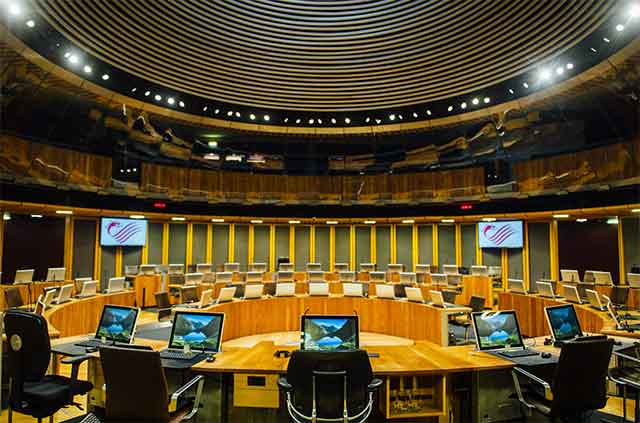Children’s and adult hospice services face an existential threat due to rising costs, workforce pressures and increasing demand, the Senedd heard.
Mabon ap Gwynfor led a debate on the charitable hospice sector in Wales, raising concerns about its short- and medium-term sustainability after years of underinvestment.
The Plaid Cymru MS told the Senedd that many of Wales’ charitable hospices are already making or planning cuts to services, with all 14 projecting a financial deficit for this year.
Calling for parity between hospices and the NHS, Mr Gwynfor said: “When our health boards find themselves in financial difficulties, they routinely get bailed out.
“On the other hand, if a charitable hospice should find itself in financial difficulties, then not only do they have to cut services or close but that funding stream disappears and those pressures are then immediately transferred onto a struggling health board.”
The shadow health minister said the hospice workforce should be paid a fair salary, equivalent to the ‘Agenda for Change’ rates in the health service.
Mr Gwynfor, who represents Dwyfor Meirionnydd, explained that most charitable hospices have received no uplift in funding from health boards this year.
He warned: “Hospices are drawing on reserves to make up the shortfall and protect services. But reserves are finite, with Welsh hospices on average having just 10 months in reserve – with some having as little as three months.”
‘Astonishing’
Jayne Bryant said she visited St David’s hospice in her Newport West constituency last week alongside her colleague Eluned Morgan, Wales’ health minister.
The Labour MS told the chamber that St David’s is free of charge but it costs £13,500 a day to provide care, and the charity will end this financial year with a £262,000 deficit.
Ms Bryant said: “More people are cared for at St David’s and by St David’s than the Royal Gwent, Neville Hall and the Grange hospitals across the Aneurin Bevan board area.
“This is the equivalent level of the provision of 46 wards, based on a 30-bed ward, and that really is quite astonishing.
“Over 34,000 hours of care were provided by St David’s hospice-at-home service last year, enabling patients to remain in their own homes if that is their choice.”
She said the health minister is acutely aware of the stark financial pressures faced by charitable hospices across Wales.
‘Flat funding’
Mark Isherwood, who chairs the cross-party group on hospices, warned that statutory funding has been flat for a decade, so it has fallen in real terms.
Mr Isherwood said a cross-party group inquiry found that statutory funding of children’s hospices in Wales was significantly lower than England and Scotland.
He added that the inquiry found that, as a percentage of spending, statutory funding for adult hospices was lower in Wales than in any other UK nation.
The Conservative MS, who represents North Wales, said the number of people requiring palliative care is forecast to grow by more than 40% by 2040.
He warned that Betsi Cadwaladr University Health Board cut funding for St David’s hospice in Llandudno at a time when it was closing its own specialist palliative care beds.
Mr Isherwood raised concerns about the cost of travel for families, a lack of out-of-hours support and increasingly overstretched children’s community nursing teams.
“The Welsh Government would be failing in their duty if it did not work with the hospice sector to address the immediate funding challenges,” he said.
‘Invaluable’
Eluned Morgan praised the role that charitable hospices play in providing high-quality end-of-life care and support, saying the sector makes a massive contribution to the NHS.
She said: “One of the most difficult times in anybody’s life is when you lose a loved one and to have that kind of expertise in terms of support around you … is absolutely invaluable.”
Baroness Morgan told MSs that ministers committed to focusing on end-of-life care and reviewing hospice funding as part of the 2021 programme for government.
The health minister said an additional £2.2m has been allocated for hospices on a recurrent basis since April 2022 as part of the initial phase of the review.
Baroness Morgan explained that the second phase is focusing on making funding available to increase the capacity of district nursing and community clinical nurse specialists.
She said the third and final phase will focus on inflationary pressures, workforce challenges and the impact of increasing demand, with review recommendations expected within a week.
Baroness Morgan assured members that extra funding that health boards have received for hospices has been ring fenced and will be honoured.
MSs backed the motion – which was co-signed by all three opposition parties – with 32 for, none against and others either abstaining or not voting on Wednesday January 24.

